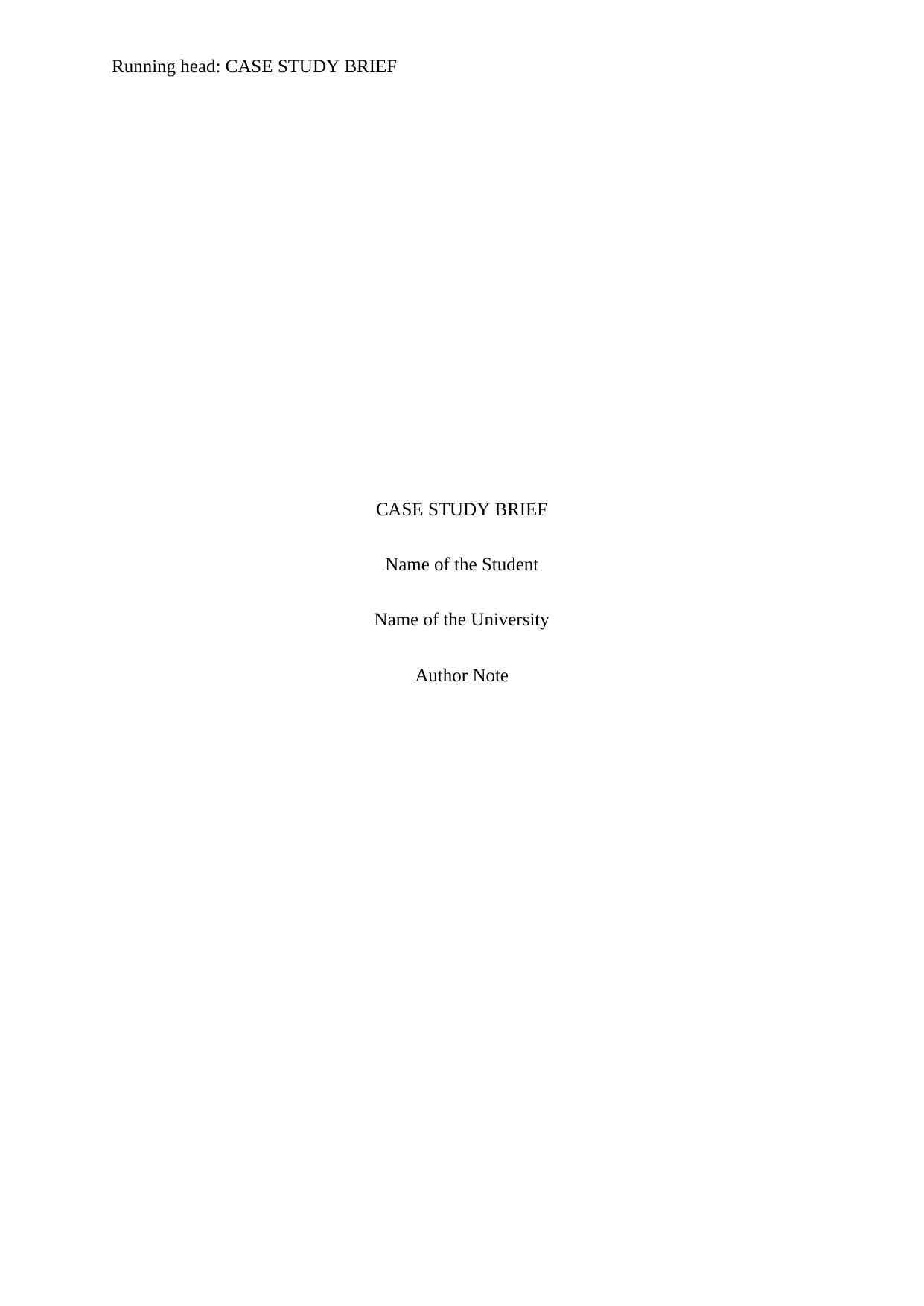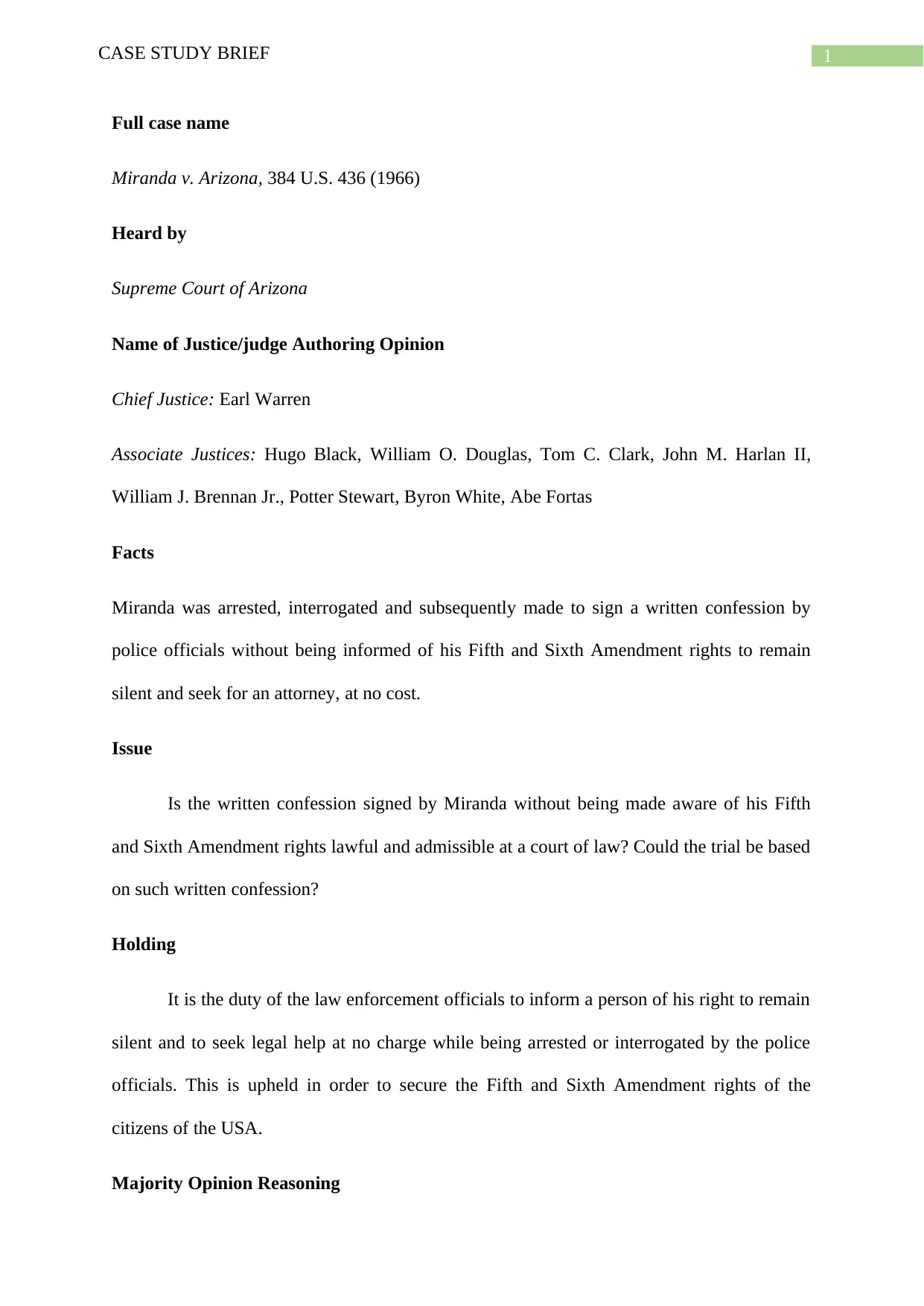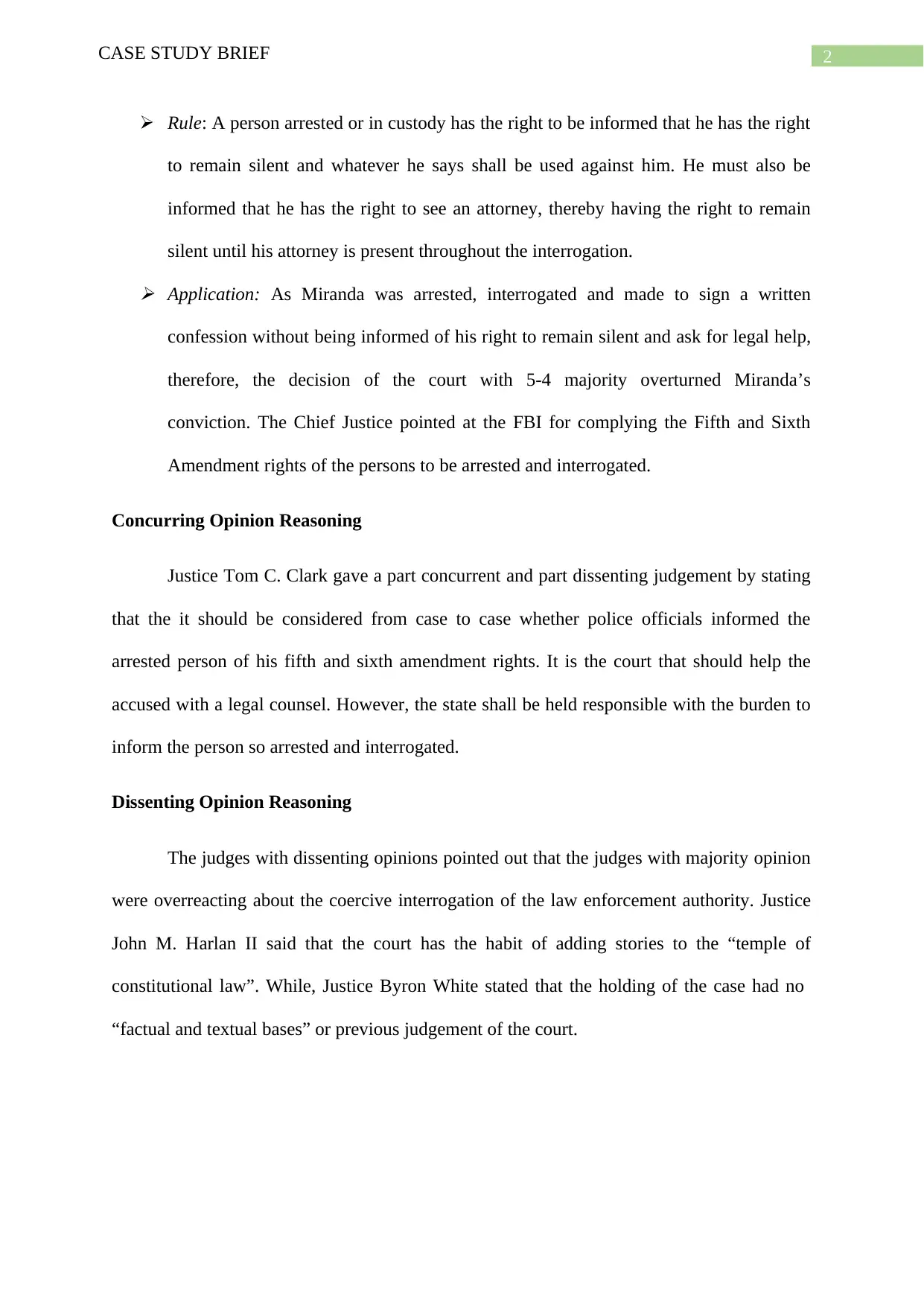Detailed Case Brief: Miranda v. Arizona, Law Assignment Solution
VerifiedAdded on 2022/08/28
|4
|540
|21
Case Study
AI Summary
This document presents a comprehensive case brief of Miranda v. Arizona, a landmark Supreme Court case. It details the facts of the case, including Miranda's arrest, interrogation, and confession without being informed of his rights. The issue addressed is whether the confession was admissible in court, given the lack of Miranda warnings. The holding establishes the requirement for law enforcement to inform individuals of their Fifth and Sixth Amendment rights during arrest and interrogation. The majority opinion, authored by Chief Justice Warren, emphasizes the importance of these rights to protect citizens from self-incrimination and ensure the right to counsel. The document also includes concurring and dissenting opinions, providing a nuanced understanding of the legal arguments and the court's decision. Furthermore, the case brief includes the rule and its application, reference to the amendments, and the reasoning behind the court's decision, offering a complete analysis of the case for educational purposes. This case brief is prepared to fulfill the requirements of a law assignment.
1 out of 4











![[object Object]](/_next/static/media/star-bottom.7253800d.svg)